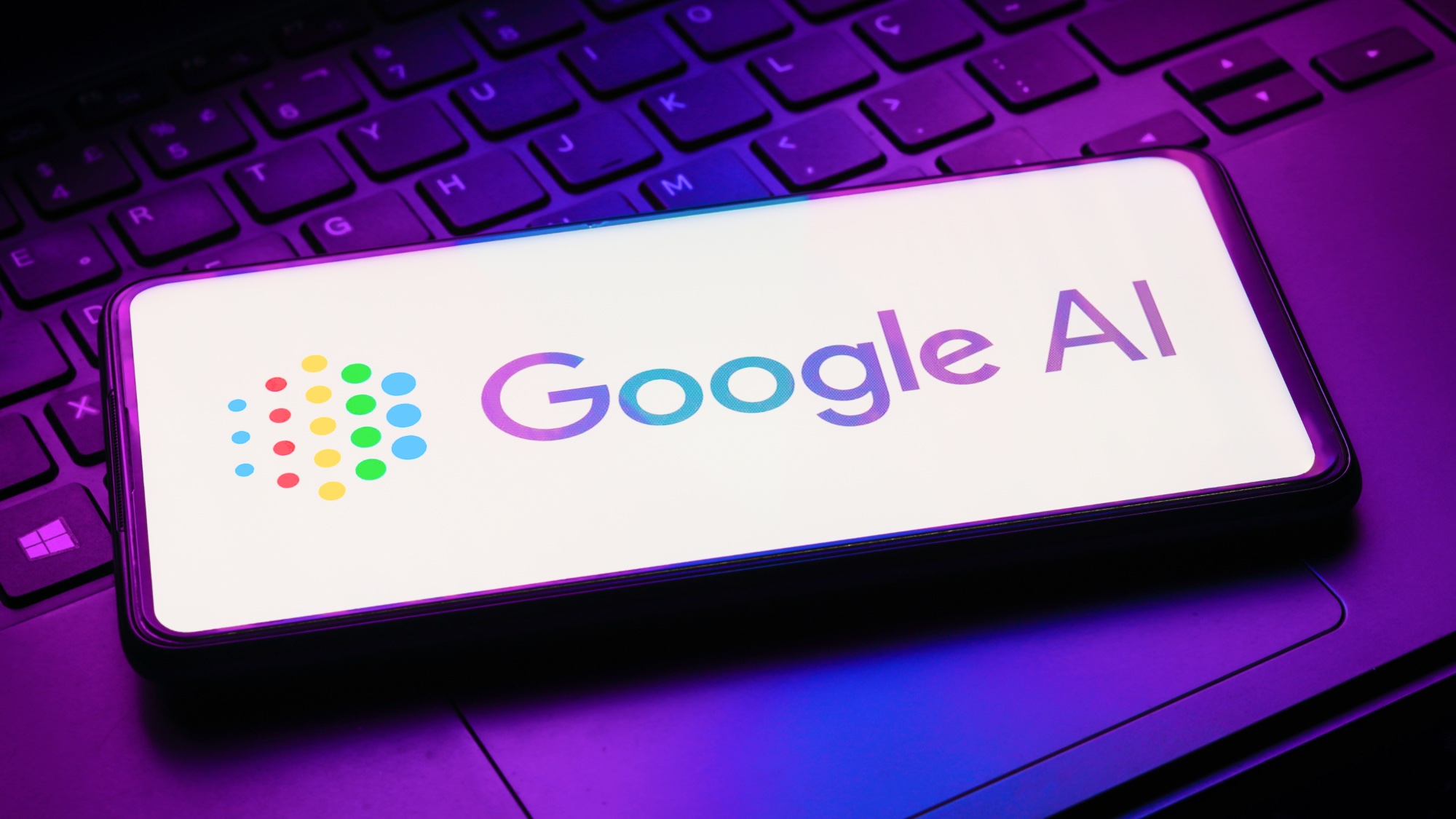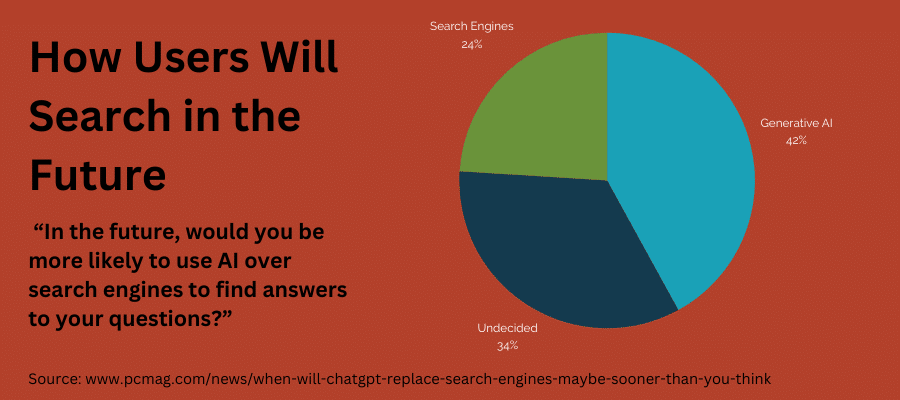Is AI replacing search engines? The short answer: not entirely.
AI is changing how we find information, but search engines are still vital. In recent years, AI technology has made significant strides. It has transformed many aspects of our lives, including how we search for information online. AI offers more personalized and efficient search experiences.
But, traditional search engines like Google still play a crucial role. They provide broad, reliable information that AI alone cannot match. Understanding the balance between AI and search engines can help you navigate the digital landscape. Stay informed about these changes, as they impact how you access and use information every day. Let’s explore how AI and search engines work together to shape our online experiences.
Ai Vs Traditional Search
In the digital age, search engines have been our guide. They help us find information quickly. But now, AI is entering the arena. AI promises to change how we search. It brings new methods and technologies. It’s crucial to understand how AI and traditional search engines differ. This knowledge helps us adapt to evolving technology.
Ai’s Role In Search
AI uses complex algorithms for search tasks. It can understand natural language better. This means it processes queries like humans do. AI can learn from past searches. It improves accuracy over time. It predicts what users want. This makes search more efficient.
AI also personalizes search results. It considers user behavior and preferences. This results in more relevant outcomes. AI analyzes vast amounts of data quickly. It identifies patterns and trends. This enhances the search experience significantly.
Differences In Functionality
Traditional search engines rely on keywords. They match these keywords with indexed pages. The process is straightforward but limited. AI, on the other hand, understands context. It interprets user intent beyond simple keywords. This leads to more precise results.
AI can handle voice search effectively. It recognizes spoken language. Traditional search engines struggle with this task. AI adapts to new data swiftly. It refines its methods continuously. These capabilities set AI apart from traditional engines.

Credit: www.tomsguide.com
Impact On User Experience
Artificial Intelligence changes how people search online, affecting user experiences. AI tools might offer faster answers, but could limit search options. Understanding these changes helps in adapting to new ways of finding information.
The integration of AI into search engines is reshaping the user experience in significant ways. As AI tools become more sophisticated, they promise to deliver a more streamlined and personalized experience. However, this evolution also brings with it a set of challenges that users must navigate.
Personalization Benefits
AI has the potential to tailor search results to your specific needs and preferences. Imagine searching for a new recipe and getting suggestions based on your past cooking habits or dietary restrictions. This level of personalization means that you spend less time sifting through irrelevant information.
Moreover, AI can anticipate your needs by analyzing your search history and patterns. If you frequently search for travel destinations, you might start seeing recommendations for flights or hotels. This predictive capability can enhance your browsing experience, making it more efficient and enjoyable.
Challenges For Users
While personalization is a clear benefit, it comes with the challenge of privacy concerns. How comfortable are you with AI algorithms knowing your preferences and habits? This raises important questions about data security and personal boundaries.
Another challenge is the potential for biased search results. AI systems can sometimes reinforce existing biases, showing content that matches your past behavior rather than offering diverse perspectives. This can limit your exposure to new ideas and information.
User adaptability is also a consideration. Not everyone is tech-savvy, and adapting to AI-driven search engines might be daunting for some. It’s crucial to ensure that these tools remain accessible and user-friendly for everyone.
In this rapidly changing landscape, how do you balance convenience with privacy and diversity? As AI continues to evolve, staying informed and critical about its impact on your search experience is essential.
Industry Adaptation
Artificial Intelligence is reshaping the way industries operate. Search engines are evolving as AI technology advances. This shift is transforming how information is accessed online. Industry adaptation is crucial in this dynamic landscape.
Tech Giants’ Innovations
Leading tech companies are investing in AI-driven search capabilities. Google is enhancing its algorithms with machine learning. Microsoft’s Bing integrates AI for more personalized results. These giants aim to improve search accuracy and user experience.
AI technology helps interpret user intent more precisely. This results in better search outcomes. Innovations in AI are paving the way for smarter search engines. Tech giants are setting new standards in information retrieval.
Startups In The Ai Search Space
Startups are entering the AI search arena with fresh ideas. Many focus on niche markets and specialized search needs. These companies often offer unique solutions tailored to specific industries.
Innovative startups are developing AI-powered search tools. Their agility allows them to quickly adapt to market changes. These tools often provide users with faster and more relevant search results.
Startups bring diversity and competition to the AI search space. Their contributions drive the evolution of search technology. As AI continues to grow, industry adaptation becomes increasingly vital.

Credit: www.webascender.com
Future Prospects
The future of AI in search engines is a hot topic. Many wonder if AI will completely replace traditional search engines. Let’s explore the potential for growth and the concerns and opportunities that come with it.
Potential For Growth
AI technology is advancing rapidly. Search engines are getting smarter every day. They can understand user intent better. This means more accurate results. AI can also process large amounts of data quickly. This improves search efficiency.
Many companies are investing in AI. They see its potential. AI can personalize search results. This makes the user experience better. Personalized results mean users find what they need faster. This can save time and increase satisfaction.
Concerns And Opportunities
There are some concerns about AI. One worry is privacy. AI collects data to improve searches. Some users fear their data is not safe. Transparency is also an issue. Users want to know how their data is used.
Despite these concerns, there are opportunities. AI can help in many ways. It can make search engines more efficient. It can also help businesses. Better search results can lead to more customers. This can boost sales.
The future of AI in search engines looks bright. There is room for growth. With the right balance, AI can offer many benefits. Users and businesses can both gain from its advancements.

Credit: eternitymarketing.com
Frequently Asked Questions
Is Google Going To Be Replaced By Ai?
Google isn’t likely to be replaced by AI soon. AI enhances search engines, but Google’s vast infrastructure and technology make it indispensable. AI tools complement Google, improving user experience and efficiency. Google’s continuous innovation ensures its relevance in the digital landscape, maintaining its position as a leading search engine.
How Do I Remove The Ai Search?
To remove AI search, access your device or browser settings. Locate the search engine options. Select a different search engine or disable AI features. Save changes and restart the browser for them to take effect. Ensure you follow specific instructions based on your browser or device model.
Is Google Search Becoming Obsolete?
Google Search remains relevant with constant updates and AI integration. Emerging technologies and platforms may challenge it. Google adapts by enhancing user experience and results accuracy. Despite competition, it remains a dominant search engine due to its vast data resources and innovative features.
Users continue to rely on its comprehensive search capabilities.
What Is Replacing Google Search?
No single platform is replacing Google Search. Other search engines like Bing, DuckDuckGo, and Yahoo compete. AI technologies like ChatGPT and voice assistants are evolving search dynamics. Google continuously updates its algorithms to maintain dominance. Users explore alternatives based on privacy and personalized experiences.
How Will Ai Change Google Search?
AI will enhance Google Search by personalizing results and improving relevance. It will provide more accurate answers and context. Search efficiency will increase through AI’s ability to understand natural language. Visual and voice search capabilities will advance, making searches faster and more intuitive for users.
Conclusion
AI is influencing search engines, but it won’t replace them soon. Search engines still play a key role in finding information. AI enhances search results, making them more accurate. Users get better answers quickly. Both AI and search engines work together to improve user experience.
Stay informed about these changes. This way, you can make the most of both tools. Keep learning and adapting as technology evolves. The future holds exciting possibilities for both AI and search engines.

